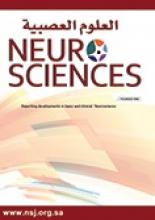JULY 10, 2023 - Indigenous people in Canada have higher illness rates and lower life expectancies than non-Indigenous Canadians. A new study reveals that Indigenous men in the country who have prostate cancer are being diagnosed with more advanced and more aggressive tumors than their non-Indigenous counterparts. The findings are published by Wiley online in CANCER, a peer-reviewed journal of the American Cancer Society.
To identify disparities in prostate cancer screening, diagnoses, management, and outcomes between Indigenous and non-Indigenous men in Canada, a team led by Adam Kinnaird, MD, PhD, of the University of Alberta, examined data on 1,444,974 men who were screened for prostate cancer in 2014-2022 and were enrolled in the Alberta Prostate Cancer Research Initiative.
When they examined testing rates by postal code, the investigators found that men in Indigenous communities were less likely to have prostate-specific antigen (PSA) tests to detect prostate cancer than men outside of Indigenous communities (32 vs. 46 PSA tests per 100 men aged 50-70 years within one year).
Also, among 6,049 men diagnosed with prostate cancer, Indigenous men were more likely to have PSA levels ≥10 ng/mL (48% vs. 30%), stage II or higher cancer (65% vs. 47%), and high-grade tumors (79% vs. 64%) than non-Indigenous men. In addition, over a median follow-up of 3.3 years, Indigenous patients were 2.3-times more likely to experience cancer spread, or metastasis, than non-Indigenous patients.
“What is critical about this is that these results come from within a publicly funded universal health care system in which all peoples should have equal access to care,” said Dr. Kinnaird. “The findings are significant because they identify Indigenous men as a population at risk for more aggressive prostate cancer and potentially worse survival. Key infrastructure changes, including better access to primary care physicians, may help improve prostate cancer screening and identify men at earlier, and curable, stages of the disease.”
Full Citation: “Disparities in prostate cancer screening, diagnoses, management, and outcomes between Indigenous and non-Indigenous men in a universal healthcare system.” Alex Kiciak, Wayne Clark, Maxwell Uhlich, Angeline Letendre, Catalina Vasquez, Anais Medina Martin, Michael Kolinsky, Christopher Fung, Tarek A. Bismar, John Lewis, and Adam Kinnaird. CANCER; Published Online: July 10, 2023 (DOI: 10.1002/cncr.34812).
URL Upon Publication: http://doi.wiley.com/10.1002/cncr.34812
Copyright © 2021 The Cochrane Collaboration. Published by John Wiley & Sons, Ltd., reproduced with permission.
- Copyright: © Neurosciences
Neurosciences is an Open Access journal and articles published are distributed under the terms of the Creative Commons Attribution-NonCommercial License (CC BY-NC). Readers may copy, distribute, and display the work for non-commercial purposes with the proper citation of the original work.






